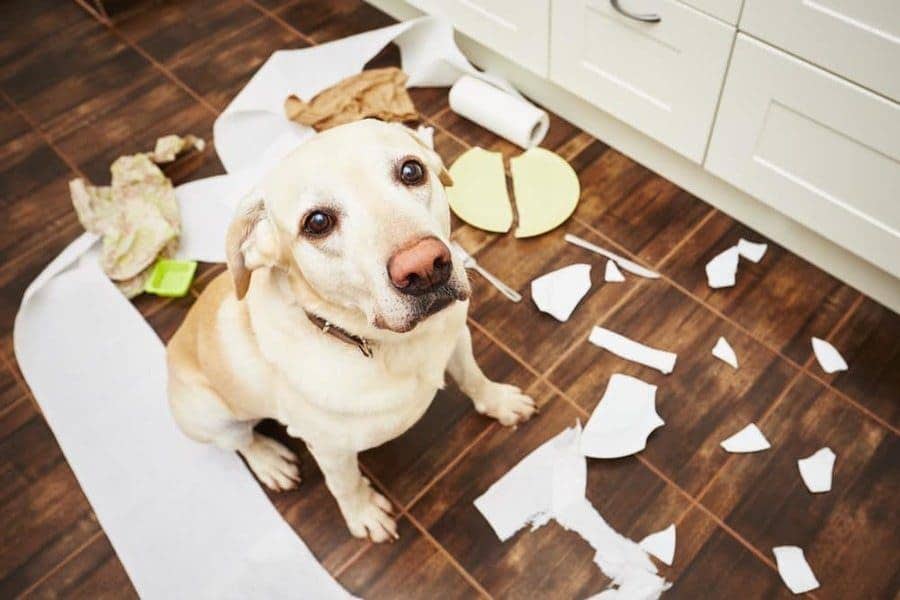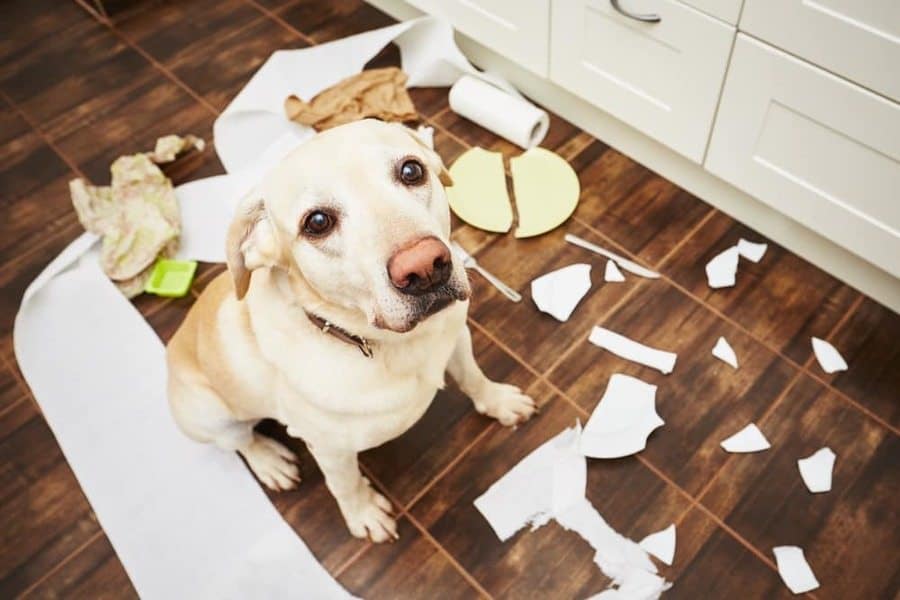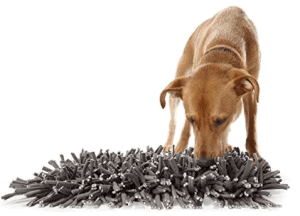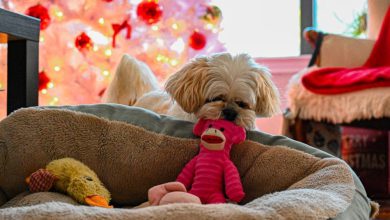

“I don’t get it, I love my dog, I leave him with his food, toys, and give him a lot of love before I leave for work, but he still destroys things when I leave him alone. Help!” – Mary M.
Hi Mary,
Now don’t take this the wrong way, as I know you love your dog and are trying to give him the best and easiest life possible…but that is part of the problem.
Dogs are animals. More specifically, they are canines. Canines require mental and physical work in order to feel fulfilled and relaxed. Without that, they get into mischief. A dog with an unfulfilled sense of accomplishment from working hard, will bark excessively, experience separation anxiety, and destroy household items.
Research proves that when given a choice, animals would rather work for their food, than have it given to them without effort. So instead of letting your dog lounge around on their bed waiting for you to serve them on a “silver platter (or bowl)”, chow down their food in seconds, and go lay down on the couch…help them to live a more meaningful life that will make them happier, healthier, and reduce unwanted behaviors that frustrate you. This is easy to do by allowing them to work for their food.
Here are three ways for your dog to work for their food (#3 is my personal favorite):


- Scattering: Take your dog’s dry kibble and scatter on an appropriate surface, such as a patch of grass (free of debris/hazards), on your deck, kitchen floor (place on newspaper, cardboard, etc. for easy cleanup), or scattered in a Snuffle Mat.
- Puzzles: Make sure the toy puzzle is difficult enough to challenge your dog both mentally and physically. Buy 4-6 different toys, in order to create a puzzle rotation. That way your dog only sees the same toy every 4-6 meals.
- Obedience Training: Work on your dog’s obedience commands and reward using their food. Practice the 5 Obedience Commands to Make Your Life Easier before each of their meals. This only takes 5-10 minutes and your dog will get a great deal of mental/physical exercise, a sense of accomplishment, and you will have a better-behaved dog.
The key with obedience training is to make sure you strategically progress in distance, duration and distraction, while keeping the Rule of Three in mind.
In conjunction with this, I would properly crate train your dog and let them rest safely in there when unsupervised. This will help keep him out of trouble when you are not home. A mentally and physically satisfied dog will enjoy their time to sleep and play with their favorite toy or bone in the crate.
I hope you find this helpful and remember…a Bored dog is a Bratty dog and a Tired dog is a Terrific dog.
Westchester Dog Trainer Steve Reid, of S.R. Dog Training. Read more about Steve at www.srdogtraining.com and www.Facebook.com/SRDogTraining.



